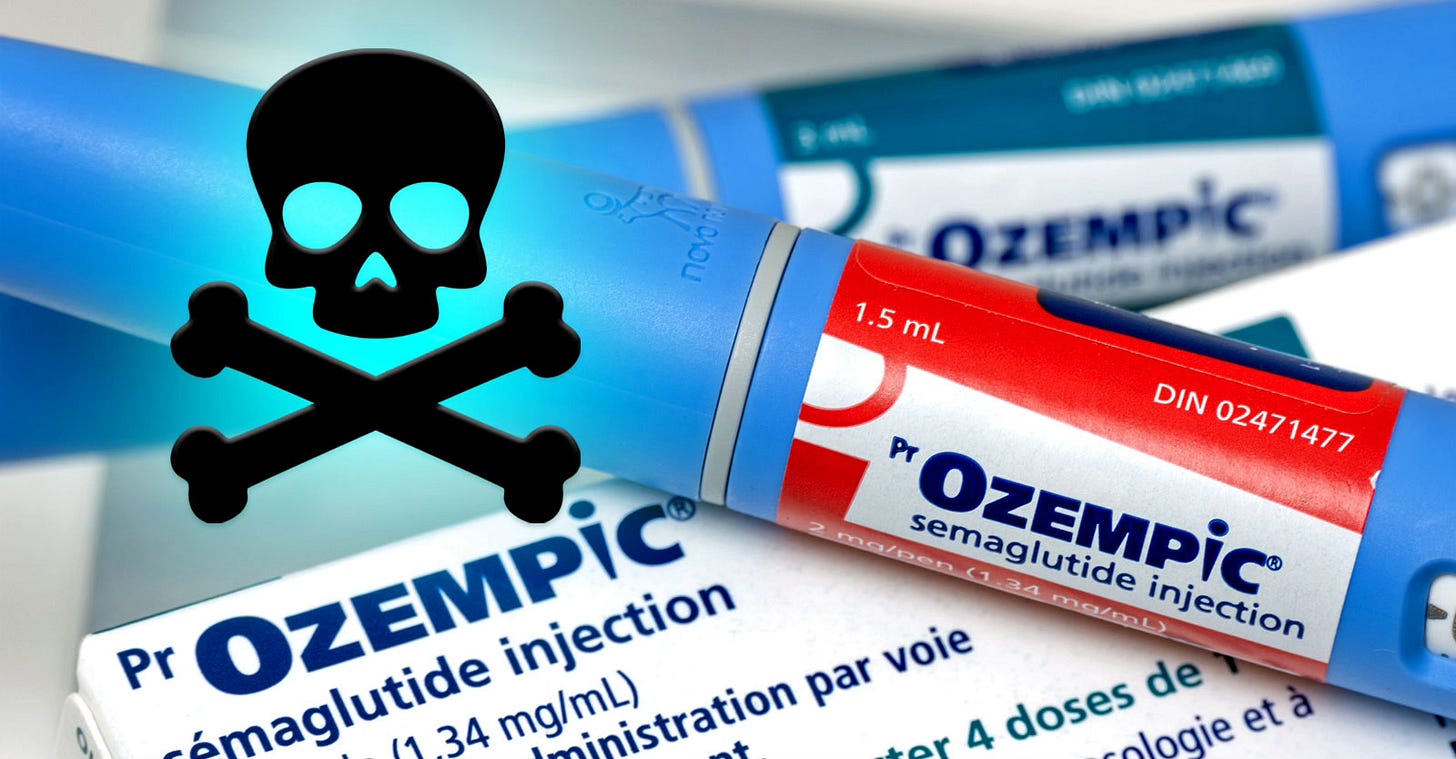The Hidden Dangers of Ozempic and Similar Weight-Loss Drugs
Uncovering the Severe Risks of Popular Weight-Loss Drugs and Their Hidden Impact on Vulnerable Populations
In recent years, weight-loss drugs like Ozempic and Wegovy have gained immense popularity, touted as miracle solutions for managing obesity and weight-related health issues. However, beneath the surface of their rapid rise lies a growing body of evidence pointing to severe and sometimes life-threatening side effects. From mental health risks to vision loss and even fatalities, these drugs pose significant dangers that demand closer scrutiny, especially for vulnerable populations like individuals with Autism.
The Mental Health Risks
A recent study revealed a troubling link between Ozempic (semaglutide), Wegovy, and an increased risk of suicidal thoughts. According to the findings, individuals taking these medications were 45% more likely to experience depression and suicidal ideation. These numbers are alarming, particularly for individuals who may already be predisposed to mental health challenges.
For individuals on the autism spectrum, this risk becomes even more concerning. Many autistic individuals already face heightened rates of anxiety, depression, and other mental health disorders. Introducing a medication that exacerbates these risks could have devastating consequences for a population that requires specialized and cautious care.
Vision Loss and Blindness
In addition to mental health concerns, Ozempic has been linked to severe ocular side effects. A recent study uncovered a connection between semaglutide use and blindness, adding to a growing list of alarming side effects. The mechanism behind this risk remains unclear, but it raises serious questions about the drug’s overall safety profile.
For individuals with autism, many of whom rely on visual and sensory input for communication and daily functioning, the potential for vision impairment is particularly concerning. Such a side effect could severely impact their quality of life and developmental progress.
Fatalities and Serious Side Effects
The most recent data adds an even graver dimension to the conversation: Ozempic and similar weight-loss drugs have been linked to 162 deaths in the United States. These fatalities highlight the urgent need for transparency and a reevaluation of the safety protocols surrounding these medications. Beyond deaths, users have reported a range of side effects, including:
Severe gastrointestinal issues
Pancreatitis
Gallbladder disease
Kidney problems
Adding to the list of concerning medications is Tirzepatide, marketed under the brand name Mounjaro. A recent case reported the tragic death of a nurse who had been prescribed the drug. Tirzepatide has been associated with serious adverse effects, including cardiovascular complications and exacerbation of pre-existing health conditions. Like Semaglutide, Tirzepatide is being aggressively marketed despite a lack of long-term safety studies, further underscoring the need for caution.
For individuals on the autism spectrum, these physical side effects could be especially harmful, as they often have underlying medical conditions or sensitivities that make them more vulnerable to adverse drug reactions.
Why the Autism Population Is More at Risk
individuals with Autism Spectrum Disorder often face unique challenges when it comes to managing their health. Many already experience gastrointestinal issues, sensory sensitivities, and an increased prevalence of anxiety and depression. Adding a medication like Ozempic, with its well-documented risks, to their care plan could compound existing challenges and introduce new, potentially life-threatening complications.
What Can Be Done?
Informed Decision-Making: Parents and caregivers should thoroughly research the risks and benefits of any medication before introducing it into their child’s routine. Speak with healthcare providers who understand the unique needs of autistic individuals.
Focus on Natural Solutions: For weight management, prioritize natural approaches such as whole-food diets, Akkermansia probiotics, physical activity, and addressing underlying conditions like inflammation or hormone imbalances.
Advocate for Transparency: Demand more robust safety studies and clearer labeling from pharmaceutical companies. The risks associated with these medications must be fully disclosed to the public.
Policy Changes: Push for stricter regulations on prescribing these drugs to vulnerable populations, including children, young adults, and those with pre-existing conditions.
A Call for Caution
The promise of quick fixes often comes with hidden costs. While drugs like Ozempic and Wegovy may offer short-term weight-loss solutions, the long-term risks cannot be ignored. For individuals on the autism spectrum and others in vulnerable populations, these risks are magnified, making it all the more critical to proceed with caution.
As parents, caregivers, and advocates, we must prioritize the health and well-being of our children above all else. By staying informed, asking the hard questions, and exploring safer alternatives, we can ensure that the choices we make today will protect our children's future. www.WarriorMom.com and www.AutismHealth.com





What I'd like to know is what is the timeframe of these side effects showing up. Is it 6 months, 9 months, a year, etc... I have a loved one who I've talked to till I'm blue in the face and this person won't listen. So I just get to watch them kill themselves.
It feels like so many are screaming the dangerous side effects of these drugs but no one is listening. So frustrating.